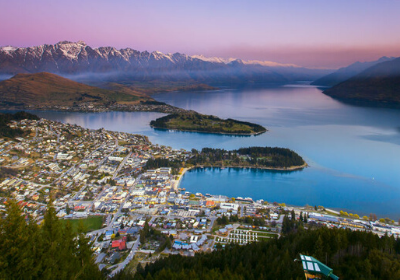The boss of Film Otago Southland says competing for filming locations is one of the biggest threats to the New Zealand industry.
Its executive manager, Kevin Jennings, said people assumed finding and shooting on location was easy, but that was far from the case. Instead it was becoming harder to get permission to film in some locations, he said.
“It’s kind of an unknown issue because people just assume there’s lots of great locations and everyone likes [to] film so it’s easy … but the reality is we’re competing with other users of those locations, and whether it’s tourists or locals or business or possibly farming activity, the pressure on locations is greater than it’s ever been,” Mr Jennings said.
“The reality is, if we don’t have access to a location then for all intents and purposes, that location doesn’t exist. New Zealand’s industry has been really built on the backbone of its world beating locations, that’s a significant threat to our industry.”
There were two main challenges to gaining access: “There’s the facilitation side which is where we help navigate a specific project, and that part’s working fantastic and that’s really building relationships.”
But the real threat was from policy decisions, he said.
“There’s often a massive disconnect between the people making the policy decisions and what the reality is in the field.”
The pending national park management reviews for Westland Tai Poutini and Aoraki/Mt Cook could also be problematic for the industry if access was reduced, he said.
The advent of streaming services had also been a game changer for the film industry.
“It provides an incredible amount of opportunity in that there’s more and more demand for content to be created,” Mr Jennings said.
He was curious to see how the industry would get involved and embrace the opportunities.
“How do we adapt to the new era of the screen industry? What we’ve seen in the last five years has been radical change and who knows what’s going to come in the next five years.”
He has witnessed the shift from a focus on large-budget, international TV commercials based in Queenstown to more films or TV content.
“For people in the Otago Southland region, we’re specialists really in filming in our outdoor environments and taking advantage of our locations so those skills will apply to the new streaming services. It’s really just how to navigate the business flow of getting more of them here and more people from a traditional TV commercial market onto the new long forms.”
Mr Jennings has resigned from his role as the Film Otago Southland executive manager effective at the end of the year.
Film Otago Southland executive manager Kevin Jennings is resigning from his role. Photo: Supplied
He had a somewhat unconventional path into the film industry.
“Like many in the industry, I stumbled my way into it. I used to work at AJ Hackett Bungy years ago, I was doing some consulting for bungy and got brought into to some bungy stunts on a TV commercial, and through that I met people in the industry,” Mr Jennings said.
From there he entered the world of TV commercial before branching into film and starting at Film Otago Southland about 13 years ago.
It was there he got involved with the Association of Film Commissions International (AFCI), which he has been the chairman of for the past four years.
Through the AFCI, he took courses to become a certified film commissioner and is the only one certified in Australasia.
He described the international title as a similar to a PHD, but for filming.
“What it really ensures is that you’re up to the cutting edge of what’s happening globally, the issues that we have here in New Zealand are similar to ones that happen everywhere else so it allows us to have an insight into how to find the best solutions to problems we have here by learning from other film commissions,” Mr Jennings said.
There have been plenty of highlights during his time at Film Otago Southland, including receiving a call from English filmmaker Sir Ridley Scott’s team about scouting for locations while Alien was being produced.
The next morning, he was flying in a helicopter with Sir Ridley Scott, watching him at work.
He wasn’t sure what he would do next, but said the film sector was in a healthy place with an extremely vibrant industry in Wellington and Auckland.
“The challenge is going to be how do we spread that industry into the regions.”
Accessing locations would be crucial to making that happen, he said.
“I’m hoping New Zealand continues to be seen as a leader in the global film industry and I’m hoping that we’re able to continue to create pathways for younger people to make their way into a good career.”
Film Otago Southland chair Michael Hesp said Mr Jennings had given outstanding service to the industry.
“His involvement with the Association of Film Commissions International (AFCI) has raised the international profile of the region and New Zealand as a desirable film destination. In addition, his work in obtaining access to sensitive government land has been world leading,” Mr Hesp said.
Mr Jennings will wrap up as Film Otago Southland’s executive manager on 31 December.
Read original article here.
